Vaginal dryness affects 85% of women. While it can occur at any age, it is much common with women going through menopause and perimenopause.
Normally, the vaginal walls are hydrated by a thin layer of clear, odorless fluid. Estrogen influences the pH of the vagina and vaginal secretions. Without enough moisture, vaginal tissue becomes fragile and has the propensity to tear. These fragile tissues can bleed, hurt and make intercourse less appealing. The fluctuations and decrease in production of estrogen is a major contributor to vaginal dryness, itching, burning, discomfort, and pain during intercourse or other sexual activity. The issues with vaginal dryness are emotional, psychological, and, of course, extend to relationships.
There are 3 important things that every woman should know about vaginal dryness.
1 – It’s virtually impossible to prevent vaginal dryness; it’s like preventing age.
After menopause, the majority of women will indeed have vaginal dryness (85%) Think of it like wrinkles; we are bound to get them. As you feel your skin dry, your mucous membranes (mouth, nasal, eyes, gut and vagina) are also losing moisture due to hormonal loss. Dryness “down there” is inevitable.
“Even as your body betrays you, your mind denies it.”
– Sara Gruen
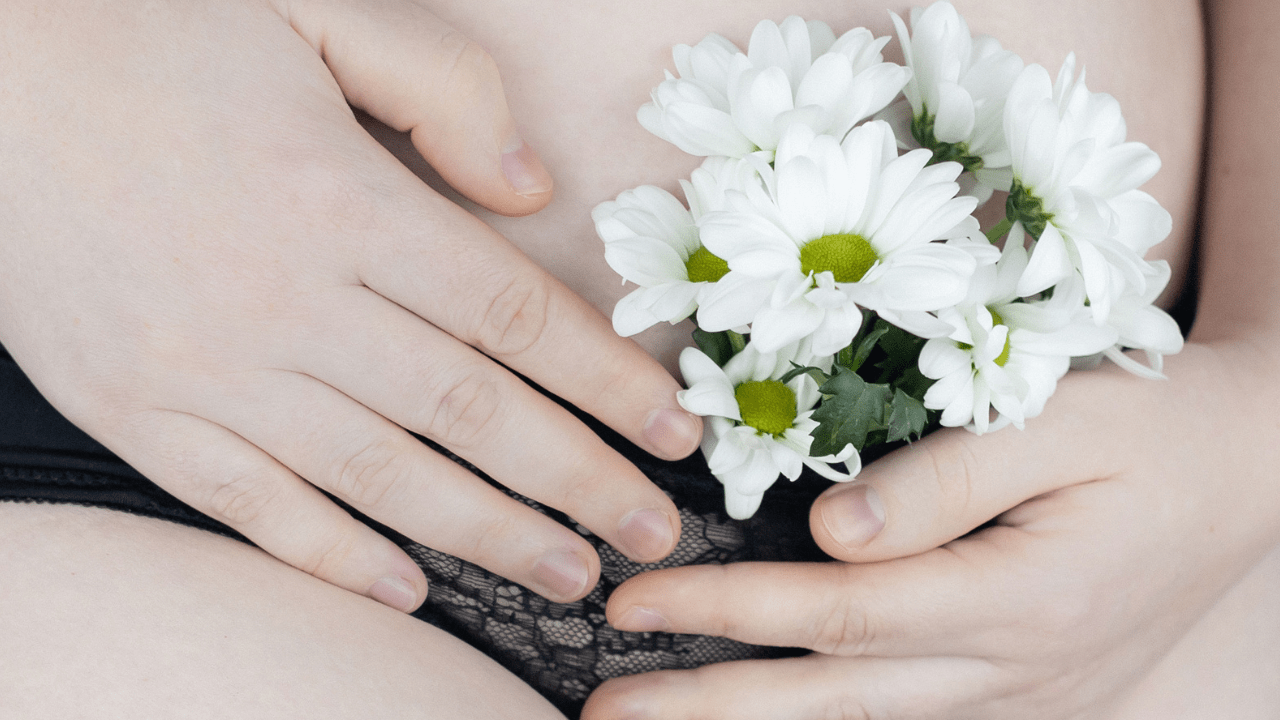
Just as a woman reaches her forties and feels that she has figured out a lot of things – about motherhood, career, love and life – her hormones are in flux and declining. Almost as if her body is betraying her. And it’s reasonable and logical that the brain denies it. There is a lot of denial around menopause and vaginal dryness, but it is important to acknowledge uncomfortable issues such as vaginal dryness and it’s important to take the stigma out of talking about. Instead, recognize that it’s just a fact of life.
2- Vaginal dryness worsens over time if nothing is done.
Many women ask, “Will this get better?”. Menopausal symptoms that are caused by hormonal fluxes – such as hot flashes and headaches – will indeed get better over time. For some women, however, these fluxes can last years, even up to 15 years.
Recommended by Health Care Professionals. Loved by thousands of women who got their life back.
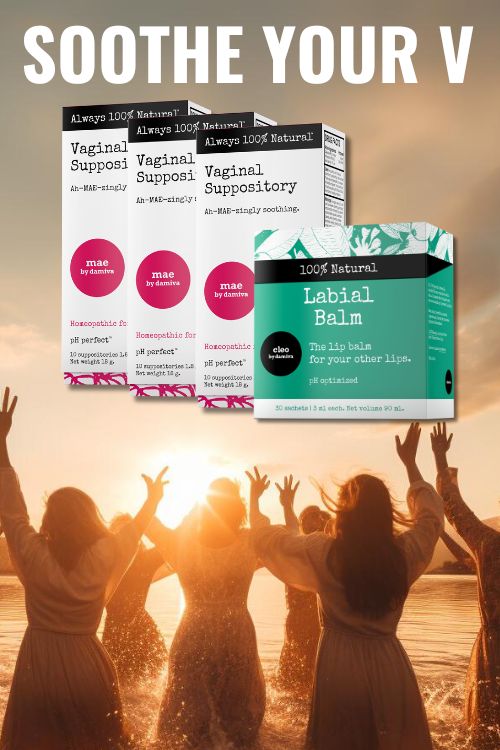
However, dryness of the vagina – because it’s due to hormonal loss, not flux – will worsen over time. As will our wrinkles, dry mouth, dry eyes and joint pain. As with any chronic, deteriorating condition, it’s important to try and prevent a rapid decline as much as possible.
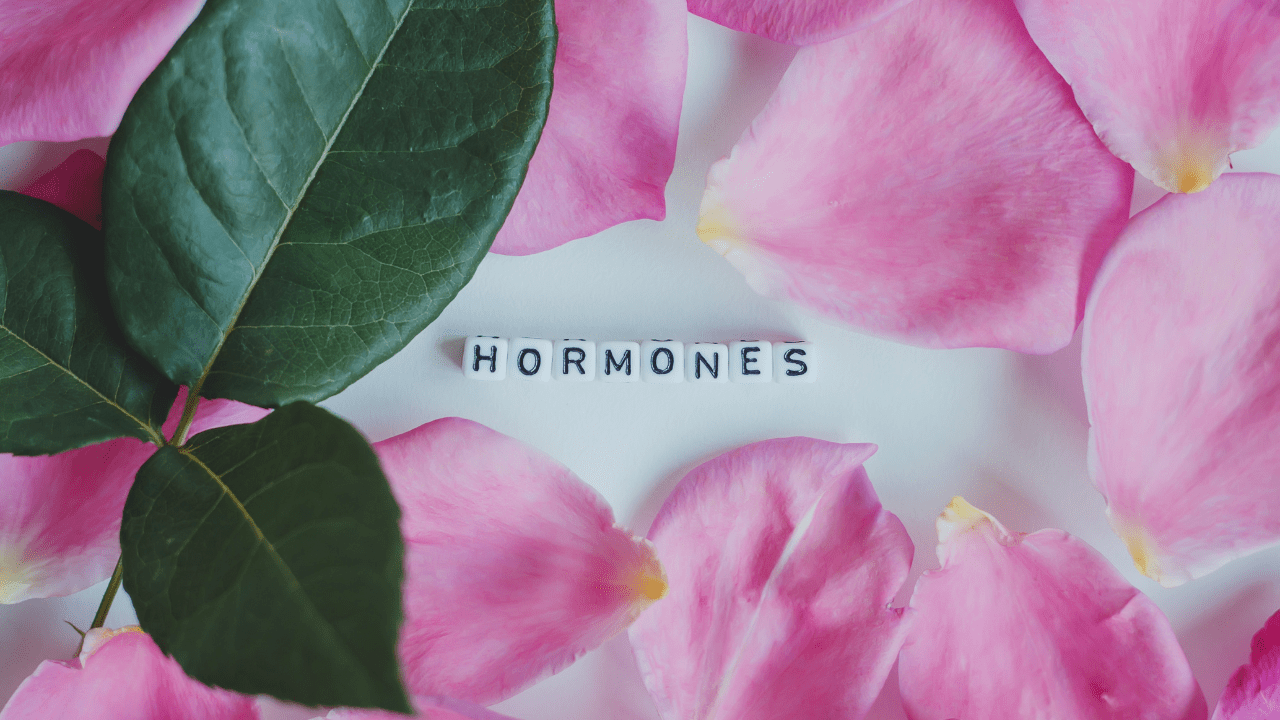
3 – What are the best methods of preventative care?
The best maintenance is to exercise your vagina, or as some like to call it, “sexercise”. Yes, it’s about “use it or lose it”, as with any organ. A 70 year old woman’s best advice was to “use your body in the way it was meant.” For her, that meant having children, breast-feeding, and having regular sex. She pointed out that the last one was the most difficult because it involves working hard at relationships. While we can’t all make the same, or even similar, choices as she did, we can be aware of how important it is for our holistic health to address vaginal health.
Now that you know a little bit more about vaginal dryness, here is the best maintenance program for slowing down vaginal dryness:
Regular intercourse and orgasm.

Find a sexy toy and practice self-stimulation or engage with your partner. Ensuring blood flow to the genital region increases metabolism and tissue pliability. This is the part that partners like to hear: It really is about “using it or losing it.” It’s not just the exercise to the vagina and surrounding tissues through orgasm, it’s also about getting a wonderful dose of high powered sex hormones to help you feel younger again.
Use only natural vaginal products
It is essential to find all natural products specifically designed for the vagina such as pH balanced cleansers and lubricants. Up to 40% of women experience pain with intercourse so it is important to be proactive about using products and not use them when it’s too late.

Avoid prescription drugs
Many types of drugs have side effects for your mucous membranes that cause vaginal dryness. The most common ones are anti-depressants, antihistamines and birth control.
Oftentimes, women are not aware of how important vaginal health is for their well-being, especially after age 50. Vaginal dryness can lead to atrophy (shrinking of tissues), which can precipitate into incontinence and even prolapse (organ collapse or protrusion such as the uterus through the vagina).

From unhappy, dry, and sandpaper to silky, smooth and feeling good. That’s Cleo. Cleo is a 100% natural labial balm to moisture and soothe “your other lips”. Cleo is chemical-free, water-free, pH optimized and helps maintain and restore your delicate labial skin’s natural flora. Ideal for daily use or as needed. Get the most silky, lovable lips ever.



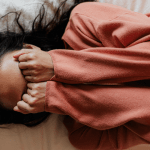
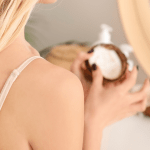
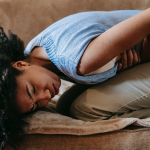
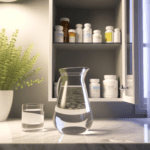

I’m Menopausal and partial hysterectomy and nothing works, so what makes your product better?
Hi Judy,
Thank you for asking. I am sorry to read nothing has worked for you so far.
To answer your question, what makes our products better?
Our products are chemical free (because they are made without water) and ph optimized. This is huge because vaginal dryness due to menopause will be an issue for 30, 40 or more years.
So therefore, a vaginal moisturizer should not contain ANY harmful substances because it would be applied for 30, 40, or more years regularly. I think you will appreciate this.
Our brand Damiva goes the extra mile of offering chemical-free products. The problem with chemicals in water-based skin care and water-based vaginal moisturizers is that these chemicals are very bad: they are hormone disruptors, they can affect our immune system, create allergies, etc etc.
Mae is our vaginal moisturizer. Mae is completely natural and moisturizes the vagina from the inside and soothes dryness. Its all natural formulation contains no chemicals, no water or alcohol, both of which dehydrate the delicate mucous membrane of the vagina over time. Mae is recommended by leading Pelvic Health Therapists in North America. Mae soothes, moisturizes, balances the pH and supports the skin flora and the natural skin barrier.
Cleo is our all-natural labial moisturizer:
the balm for all women with dry “other lips”, at all ages.
Cleo soothes, moisturizes, balances the pH and supports the skin flora and the natural skin barrier of the labia. Cleo is recommended by leading Pelvic Health Therapists in North America.
Please check out our Mae product or Soothe your V kit (Mae+ Cleo) at damiva.com. In any case, select the “First month” set to get the right start. Please know you are covered by our refund policy in case you are not happy with your results.
Soothe your V first month: https://damiva.com/products/soothe-your-v-first-month-3x-mae10-1-x-cleo-30
Mae first month: https://damiva.com/products/mae-1month-starter-kit
Please feel free to send us an email anytime in case of questions.
I would like to address the the underlying cause of your issues, which is most likely the lack of hormones and estrogen being the major influencer of vaginal secretions. I hope this is helpful for you.
The following questions are meant as pointers for you: Are you taking estrogen? Is it oral, topical or vaginal estrogen? If so perhaps the proper dose for you has not been determined? If you are not seeing any improvement dose may be too low. Please check with your medical professional to see if your dose needs to be adjusted.
Vaginal secretions and overall vaginal health during menopause can also be influenced by a variety of factors outside of estrogen levels. For instance: Changes in other hormones like progesterone and testosterone can also affect vaginal health and secretions during menopause. Certain medications can influence vaginal moisture. Antidepressants, antihistamines, and hormonal therapies can all impact vaginal secretions by altering the body’s hormonal balance or affecting mucous membranes.
Certain health conditions, such as diabetes, Sjögren’s syndrome, and thyroid disorders, can impact vaginal secretions by affecting the body’s moisture levels or hormonal balance. Please consult with a hormone specialist or medical practitioners to rule these out.
Then there are:
Lifestyle Factors: Smoking, stress, and lack of sleep can negatively affect overall health, including vaginal health. These factors can contribute to decreased blood flow and changes in vaginal secretions.
Hydration and Diet: Adequate hydration is crucial for maintaining mucous membrane health, including that of the vaginal walls. A diet rich in phytoestrogens (plant estrogens found in soy products, flaxseeds, etc.) might also have a mild beneficial effect on menopausal symptoms, including vaginal dryness.
Sexual Activity: Regular sexual activity can help to maintain vaginal flexibility and moisture by promoting blood flow to the vaginal area. Lack of sexual activity can contribute to vaginal atrophy and dryness.
Vaginal Microflora: The balance of bacteria in the vagina changes with menopause, due in part to the decrease in estrogen. This change in the vaginal microbiome can affect vaginal health and secretions, potentially increasing the risk of infections.
Environmental and Chemical Exposures: Exposure to chemicals, dyes, and fragrances found in soaps, laundry detergents, and personal hygiene products can irritate the vaginal area and affect secretions.